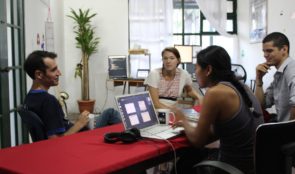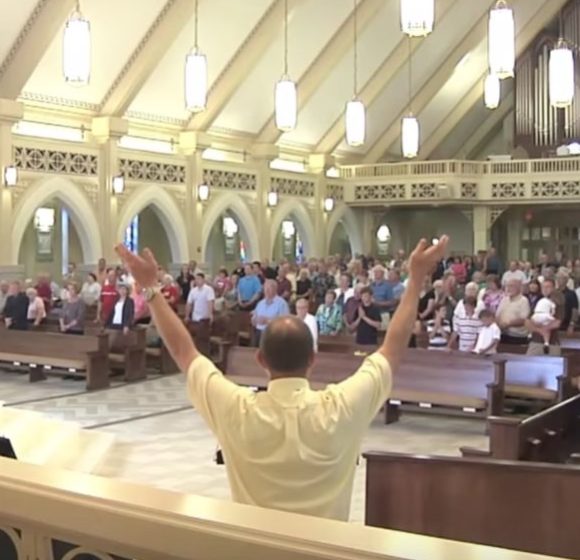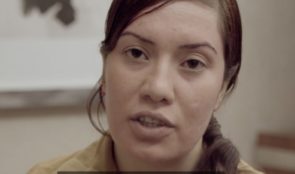Twenty-six years ago, I was in fifth grade when I announced to my parents my intention to fast the entire Muslim holy month of Ramadan, something my older brother and sister hadn’t done yet.
They looked at my slight frame and wondered whether my small body could manage the long days of abstaining from food and drink. Turns out it could and I’ve been observing Ramadan ever since.
This year, the holy month of Ramadan began on the eve of May 15. Pew Research Center reported the overwhelming majority of Muslims surveyed in 39 countries with sizeable Muslim populations observe fasting throughout the holy month of Ramadan. Similarly, the vast majority of the growing American Muslim population also fasts during the daylight hours.
Both schools and corporations have noticed. This year, PBS featured a column entitled How teachers can support students during Ramadan. Huge companies like American Airlines, Cisco, Apple, and Google have held special dinners for fasting Muslims. Many other companies have found ways to accommodate schedule changes for observant Muslims.
There’s no question, Ramadan is gaining prominence in the United States. The first people to wish me a Happy Ramadan were a Jew, a Christian, and an Agnostic, in that order. And I’m not alone.
Fasting is one of the five pillars of Islam, incumbent on those physically capable. The first is the testimony of faith, affirming that nothing is Divine, but God and that Muhammad is the Prophet and Messenger of God. The other requirements are praying five times a day, giving charity if economically able, and performing hajj if physically and financially feasible.
The most basic requirements of fasting are to abstain from food, water and sexual gratification during the daylight hours. In Texas, where I live, the fast is approximately 13 hours. For Muslims in Chile, it lasts only 10, while those observing in Greenland fast 21 hours. Because the Muslim calendar follows the lunar cycle rather than the solar, Ramadan moves 10 days earlier each year. A winter Ramadan in Texas is very different than a summer Ramadan.
Growing up in Oklahoma, many of my friends were astounded, saying things like, “You can’t eat for how long again? I’d hate that! Don’t you? How do you survive?” But the truth is, Ramadan was and is my absolute favorite month of the year and I’m not alone in this sentiment.
It is a month of starving the body to feed and cultivate the spirit.
It is turning off the noise of the outside world, forcibly extracting yourself from the noise, and intentionally immersing yourself in a month of introspection.
The first step is physical detoxification. In Islam, physical rituals are the pathway to spiritual transcendence, the seen mirrors the unseen. Denying the gratification food and drink offer is replaced by quiet contemplation, gratitude and cultivating deep empathy for those who aren’t able to access the basic staples of physical sustenance.
The first few days are admittedly difficult. Some suffer from headaches, caffeine withdrawal, and struggle with being hangry. By day four, the resilience of the human body kicks in and acclimates. The focus shifts from the external - food, drink, and entertainment – to the internal, carefully evaluating weaknesses of the spirit, from greed, anger, arrogance, lethargy, fear, and everything in between.
Each person’s experience and journey through Ramadan varies. And it varies from year to year. We are all individuals suffering from own spiritual diseases. Ramadan is the time to focus on them and intentionally work to minimize them.
This is the true spirit of the often misused term jihad – it is the personal struggle to eradicate the selfish desires of the ego, so that one’s actions are a reflection of Divine Love and Mercy.
For years, when I was younger, every December I would dread Christmas. No one bothered to tell me Santa wasn’t real and for obvious reasons, he never showed up at my house. I thought I was one of the “bad kids” and I certainly had a mischievous streak to substantiate that feeling.
I was probably one of the only kids in my class relieved to learn the Santa business was a hoax, which had the added benefit of not needing to change my behavior. But being Muslim in an Episcopalian school, attending daily chapel services, kneeling down and reciting the Lord’s Prayer, and standing up to sing from the hymnal book always made me feel a bit of an imposter.
It’s not always easy to be the minority religion in any given space.
Ramadan changes this dynamic; community is naturally built into the month. All those observing Ramadan are eating at the same time in the pre-dawn hours right before the first prayer and breaking our fasts at the same time in the evening, before rushing to perform the fourth prayer of the day.
Many Muslims host gatherings in their homes, restaurants, or the mosque to reap the blessings of feeding those who are fasting. This is the one and only time in the year where Muslims are reliably punctual. No one wants to extend the length of their fast.
Each mosque has special Ramadan prayers nightly and I’m certain there are regular violations of maximum occupancy capacities. Many mosques offer free dinner each night for anyone wanting to join. This month mosques are likely busier than all other months combined. Families who don’t often make it to the mosque alter their schedule in Ramadan to attend as much as possible.
Mosques are teeming with people of all racial backgrounds and ages, forming the beautiful mosaic of who we are as a human race.
The specialty food stores catering to the robust flavors of the Muslim-majority world are bursting at the seams when Ramadan approaches. Everyone is loading up on dates, with which most Muslims break their fast, or other comfort foods that make a distinct appearance in Ramadan. Costco and Sam’s are filled with big Muslim families wielding carts to get their staples for Ramadan meal prep.
And this year, my husband and I get to share the joys of daily fasting with our two older daughters. If the younger two beg to participate, we let them “fast” until noon, at which point they have to eat and drink. All four kids will accompany us to the mosque in the evenings.
We’ll pray a few cycles of congregational prayer and then head out to the ice cream truck that parks in our local mosque’s lot and all the kids will feast on some delicious form of indulgence they’d rarely receive outside of these special nights.
Twenty-six years ago, I embarked on my spiritual journey as a fifth grader. Now, I get to see my own little fifth grader embark on hers. For those observing and even those who are not: Ramadan Mubarak! May you have a happy and blessed Ramadan!
By Huma Yasin
Huma Yasin is an attorney, author of the forthcoming book, Conspiracy: The True Story of the Fort Dix Five, and co-founder of Facing Abuse in Community Environments. She is a Public Voices Fellow through The OpEd Project.
Worth your time
- Non Gamstop Casinos UK
- Best Non Gamstop Casinos 2025
- Non Gamstop Casinos UK
- Non Gamstop Casinos UK
- Casinos Not On Gamstop
- Casinos Not On Gamstop
- Casino Not On Gamstop
- Casino Italiani Non Aams
- Online Casino Canada
- Non Gamstop Casinos Uk
- Best Non Gamstop Casinos
- Meilleur Casino En Ligne France
- Casino Sites Not On Gamstop
- Non Gamstop Casino Sites UK
- Casino Online Non Aams
- Casino Sites Not On Gamstop
- Non Gamstop Casinos
- Meilleur Casino En Ligne France
- Meilleur Casino En Ligne Francais
- Casino Sites Not On Gamstop
- Non Gamstop Casinos UK
- Casinos Not On Gamstop
- Migliori Siti Casino Non Aams
- Meilleur Casino En Ligne
- Casino Non Aams
- Meilleur Casino En Ligne Belgique
- Siti Non Aams
- Tennis Paris Sportif
- Site De Paris Sportif En Ligne
- Casino En Ligne France
- Sweet Bonanza Avis
- ブック メーカー おすすめ
- Online Casino App Real Money
- Casino Français En Ligne
- Casino Italia Non Aams
- Meilleur Casino En Ligne Belgique
- Meilleurs Casino En Ligne
- Nouveau Casino En Ligne
- Casino Con Crypto














